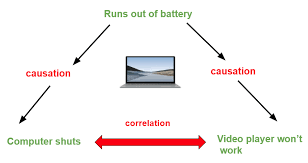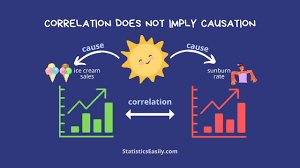What is an Causation
Causation implies that one event (exposure) directly leads to another event (outcome). Establishing causation in research requires careful consideration of study design and interpretation of results.
Criteria Implying Causation
- Temporal precedence: The exposure must occur before the outcome.
- Association: There must be a statistically significant relationship between the exposure and the outcome.
- Dose-response relationship: Increasing exposure should lead to a corresponding increase in the outcome.
- Plausibility: The biological or theoretical mechanism linking the exposure and outcome should be plausible.
- Coherence: The findings should be consistent with existing knowledge.
- Control for confounding: Other factors that could influence both the exposure and the outcome should be controlled for.
Study Designs for Causation:
- Randomized controlled trials (RCTs): Participants are randomly assigned to either an exposure group or a control group. This design minimizes confounding and allows for strong causal inferences.
- Cohort studies: Groups of individuals with different exposure levels are followed over time to observe the occurrence of outcomes. This design can be useful for studying long-term effects, but it can be susceptible to confounding and selection bias.
- Case-control studies: Individuals with and without an outcome are compared to identify potential risk factors. This design is efficient and can be used to study rare outcomes, but it is limited in its ability to establish causation due to potential bias.
Limitations of Causation Studies:
- Confounding: Other factors may influence both exposure and outcome, leading to misleading results.
- Selection bias: Participants in the study may not be representative of the population of interest.
- Reverse causality: The outcome may actually cause the exposure.
- Measurement errors: Errors in measuring exposure or outcome can lead to inaccurate results.
- Ethical considerations: Some studies that could provide strong evidence for causation may be unethical to conduct.

